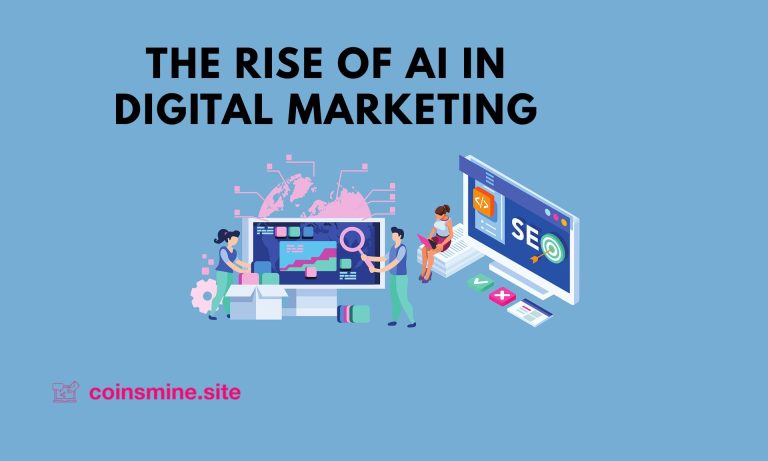The Rise of AI in Digital Marketing: Artificial Intelligence (AI) is revolutionizing the way businesses approach digital marketing. With the ability to analyze vast amounts of data, predict consumer behavior, and automate tasks, AI is enabling brands to create more personalized and efficient marketing strategies.
From chatbots and smart content recommendations to automated advertising and predictive analytics, AI tools are helping marketers connect with audiences in real time and with greater accuracy. As consumer expectations grow and digital platforms become more complex, AI is no longer a luxury—it’s a necessity. This article explores how AI is reshaping the digital marketing landscape and what it means for the future.
The Rise of AI in Digital Marketing
Once a futuristic concept, AI is now a practical tool being used by brands to enhance customer experiences, optimize campaigns, and automate tasks at scale. From personalized content recommendations to predictive analytics, AI is reshaping how businesses approach marketing in the digital age.
What Is AI in Digital Marketing?
AI in digital marketing refers to the use of machine learning algorithms, data analysis, and automation to make decisions, target audiences, and improve the performance of marketing activities. It allows marketers to work smarter by analyzing massive amounts of data and acting on it with precision—something that would be nearly impossible to do manually.
Some of the most common applications of AI in digital marketing include:
-
Chatbots and virtual assistants
-
Predictive analytics and customer behavior forecasting
-
Content creation and personalization
-
Programmatic advertising
-
Email marketing automation
-
Voice and visual search enhancements
Personalization at Scale.
One of the most significant impacts of AI in marketing is the ability to deliver hyper-personalized content. Consumers today expect a tailored experience. AI makes this possible by analyzing user behavior, preferences, and past interactions to serve content, products, or services that are most relevant to each individual.
These systems continuously learn from user behavior to deliver increasingly relevant suggestions—improving both user satisfaction and conversion rates.
Smarter Customer Engagement.
Chatbots, powered by AI and natural language processing (NLP), are now a staple in customer service and engagement. They can assist users 24/7, answer FAQs, and even guide users through a sales funnel—freeing up human agents to focus on more complex issues.
Social media platforms also use AI to curate content, target ads, and even detect sentiment from user interactions. Brands are leveraging these capabilities to engage users in a more meaningful and responsive way.
Predictive Analytics and Decision Making.
AI enables marketers to predict future customer behaviors based on historical data. This means better forecasting of trends, more accurate targeting, and smarter budgeting decisions. For instance, predictive analytics can help identify which leads are most likely to convert, allowing sales teams to prioritize their efforts more effectively.
Similarly, in e-commerce, AI can forecast inventory needs or adjust pricing in real time based on demand, competitor activity, and customer behavior.
Automated Advertising.
Programmatic advertising is another area where AI is making a big impact. It automates the buying and placement of ads using algorithms that evaluate audience data and determine which ads to show to whom and when. This real-time bidding process increases the efficiency of ad spend and improves targeting accuracy, resulting in higher ROI.
AI also optimizes ad performance through A/B testing, identifying the most effective creatives, headlines, and calls to action—often in real time.
The Challenges Ahead.
Privacy concerns, ethical use of data, and the need for transparency in AI-driven decisions are ongoing issues. Marketers must strike a balance between personalization and data privacy, ensuring compliance with regulations like GDPR and CCPA.
Additionally, there’s a learning curve. Businesses need skilled professionals who can understand and manage AI tools effectively. Without proper implementation, even the most powerful AI tools can underperform.
Final Thoughts.
AI is not replacing marketers—it’s enhancing their capabilities. The rise of AI in digital marketing is not a trend; it’s a fundamental shift in how brands interact with consumers. As technology continues to evolve, marketers who embrace AI and use it strategically will gain a significant competitive edge. It’s not just about being more efficient; it’s about being more relevant and responsive.



